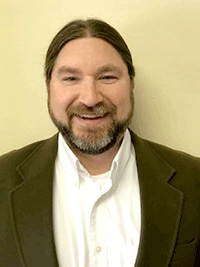

ADAMHS has introduced a new logo for use by local behavioral healthcare providers to show that our services are accessible, affirming and available to all citizens. PLACES is proud to display it on our materials.
Advocating, affirming, and ensuring accessibility to all.
Celebrating Key Milestones
PLACES Inc. is proud to honor staff members who have cele-brated milestone anniversaries with our organization during the past year.
Hear from their supervisors what makes these honorees special.
30 Years
Lisa ButlerIt is a rare thing to be one of the first employees to join an organization and still be on staff. Lisa Butler has been with PLACES for 30 years in a variety of roles. She is currently an advisor at our Randolph House Adult Care Facility. If you observe Lisa interacting with our residents there, you’ll see she embodies what passion and compassion are at PLACES. Our residents and staff are all better off because of her commitment, dedication and smile.
20 Years
Wilma Woodfork
Wilma has served in many capacities in group homes and permanent supportive housing locations, and currently manages the Cobblegate and Belvo facilities. It is common to find Wilma at work well past the time to go home. As she puts it, “Compassion and care aren’t bound to the clock.” It is a joy to be in her presence, even more if you’re there when she bursts out in song!
10 Years
MTesa ConyersIt takes a special person to work the overnight hours. MTesa is awake when we sleep. She is the ever-vigilant person on watch who ensures the safety of residents and tenants. They are not easy hours, going from quiet to chaotic in the blink of an eye. Yet MTesa is there to steady the ship and keep all safe and sound. Recently she moved into the role of Residential Substitute, where she continues to staff the overnight hours.
Saundra Ramey
Being a residential substitute requires flexibility. Saundra is responsive to the needs of those with whom she works. Her gentle presence and calming voice are gifts to all she encounters. Both staff and tenants express appreciation for her demeanor. All one needs to do is call a facility where she is and listen to her voice when she answers, and your day is better. Saundra helps make PLACES the special place it is.
Harvey Weaver
Harvey is a natural team player. He does not hesitate to drop what he is doing to ensure the client’s needs are met or to help the team out. He promotes a positive work environment and is very knowledgeable of the resources in the area. He is a strong advocate for his clients to obtain the necessary supportive services to help them become self-sufficient. Harvey is a strong asset to the SLP team and the organization.
5 Years
Shelica Arnold
Shelica embodies the words steadfast, commitment and excellence. During her time with PLACES, she kept true to the mission and vision, ensuring at all times both her staff and the residents at Trotwood experience both dignity and respect. She provides consistent leadership, not only to her facility but to the organization as a whole. Shelica is passionate about excellence, and the recent recertification by the state with no corrections is evidence.
Betty Coleman
If you look in the dictionary under “compassionate,” you would see Betty Coleman’s picture. She serves her clients with compassion and integrity. She has a strong connection with the community and is very knowledgeable of resources in the area. She does her best to help her clients achieve their needs through guidance and autonomy. Her positivity and willingness to help her clients reflects great credit upon herself and the organization.
Vie Miller
Vie is very, very reliable, and never calls off. Vie is always positive and will not hesitate to step in when needed in any areas. Vie will voice any concerns pertaining to our tenants and their wellbeing without fail. She is a major part of the team at Imperial Court, and I’m looking forward to many more years of service with her.
James “Woody” Deaton
Woody has worked in different positions within the agency, including ACFs and Housing First. We appreciate his contribution, commitment to the job and the work he’s done and continues to do to achieve our company’s Core Beliefs and Values for five years. It has been a pleasure working with you and we look forward to a continued working relationship throughout our tenure at PLACES.
Unprecedented Challenges from COVID-19

Life has changed, perhaps forever, since the World Health Organization declared a global pandemic on March 11. In the ensuing months, PLACES has rallied to fight the virus with training, teamwork and tenacity.
After the trauma of a category EF4 tornado in May and mass shootings in August, the coronavirus hit Dayton in March, creating unprecedented challenges for the staff and occupants of PLACES homes. Combined with racial tensions and civil unrest, 2020 has been a time of anxiety in which old wounds have opened up and new fears have been triggered for residents, clients and tenants. “Of all these challenges, the pandemic may be the biggest because it has impacted everyone who works here in very specific ways,” said residential services coordinator Jeffrey Stokoe. “It has caused everyone to be adaptable and diligent.”
Crisis Hits and PLACES Reacts
PLACES jumped into crisis mode as soon as Governor DeWine began to make announcements about COVID-19, although in early March it was still unclear how severe the virus would be. By mid-March there were guidelines from the CDC and National Council for Behavioral Health, which published an extensive handbook. Some preparations could be made in advance, but there was some hustling, too. Jeff described the situation as “building the car while we drove it.”
“The general tools were there, but they needed tweaks to be specific to this situation,” he explained. “We have infection control in our disaster recovery manual, but it didn’t include pandemic conditions. Infection control for something like the flu normally deals with one person or one building. The scale of this virus is different.”
The first priority was the safety of clients, residents and tenants, as well as direct care staff. Management and staff evaluated what they needed to do in each line of business.
Group Homes Adjust to Isolation
Ensuring the isolation of residents was critical at PLACES’ four adult care facilities. All offsite activities were cancelled and visitation restricted. Case managers still met with residents, but outside of the buildings.
Pharmacy delivery drivers were instructed to knock on the door and drop boxes at the door. All boxes were sealed and sanitized before they were taken into the homes.
While face coverings were optional for residents, they were required for staff. In one case, masks served as a trigger to a resident’s past trauma. In another, masks prevented a deaf resident from lip-reading. In both cases staff got around the issue by showing their faces to the residents from a distance before pulling their masks on.
Social distancing presented other complications for staff. Naturally, residents got restless over time. One ACF took everyone in their house to the park in a van where they could hang out as a group but keep a safe distance from others.
Housing First Minimizes Contact
Protocols were similar at the four Permanent Supportive Housing facilities, which were locked down to the extent possible. Tenants there are at higher risk because they are more mobile, Jeff explained.
Several tenants have outside jobs, but PLACES discouraged them from working in the early days. This precaution has since been relaxed for tenants who show good judgement and work for businesses that follow public safety guidelines.
The stay-at-home order was challenging. “We asked them to stay home, but we can’t enforce it,” Jeff said. “We screened tenants when they came into the office to see staff, and coffee service was stopped to avoid people congregating in common areas. We also asked any guests to wear masks and required tenants to knock before entering the building. They eventually began to respect what we were trying to do.”
Supportive Living Uses Digital Communication
In the Supportive Living Program, case managers found they could work from home and still complete documentation, research, networking and paperwork by phone. When appropriate, a case manager would drive to a client’s home, call them by mobile, drop off paperwork in a mailbox or door, go back to their car, and review the documentation by phone.
By taking advantage of TeleHealth services, case managers were able to keep clients scheduled for meetings by phone instead of face-to-face visits. This allowed PLACES to continue providing support to clients while decreasing their feeling of isolation. Social distancing also required local food pantries to change from walk-up service to delivery. Since transportation was limited, SLP case managers leaned in to assess their clients’ grocery needs weekly, pick up food and deliver it to them. St. Vincent de Paul, Good Neighbor House, Catholic Social Services, Hearth Community Place, With God’s Grace, Wesley Community Center and The Foodbank Inc. all played a key role in providing needed food, with the help of PLACES case managers.
New Protocols for Employees
Administrative staff and SLP case managers were encouraged to work from home, at executive director Roy Craig’s direction. Clinical staff were assigned one day a week to be in the office.
A screening process was implemented for staff, although a lack of thermometers early on required staff to monitor them-selves and self-report until equipment could be obtained.
To learn new protocols and safety precautions, employees had regular conference calls, webinars and video clips. “The communications were almost overwhelming,” Jeff said. “We split up the responsibility between Brian Wlodarczyk [director of clinical services], Roy Craig, Amber Howard [clinical services coordinator] and myself. The task would have been a full-time job for one person. Brian played a lead role because of his hospital knowledge.”
Local Agencies Pitch In
Local behavioral health agencies rallied around to alleviate the pressure on PLACES and other housing and supportive service providers.
Since the crisis came on quickly, it was difficult at first to get all the sanitation supplies needed, such as rubbing alcohol used to prevent bedbugs and other items for deep cleaning. Stokoe would stop at Dollar General and get whatever items he could. But happily, the Montgomery County Alcohol, Drug Addiction & Mental Health Services (ADAMHS) Board, Ohio Association for Adult Care Facilities, National Alliance on Mental Illness and Homeless Solutions Policy Board stepped up to source needed supplies. Today, the PLACES board room has a ready stockpile of items provided by these groups.
The ADAMHS board also prepared a hotel in Butler Township in case PLACES needed to quarantine anyone from group homes, since the company is not licensed for what is considered “seclusion.”
Useful information also came from the Ohio Adult Care Facilities Association and the Ohio Department of Mental Health and Addiction Services (OMHAS). Both provided modest funding ($425 for each group home) and wisely kept the application process simple.
Caring Staff Is Best Defense
“Our staff has done a great job of keeping our residents safe,” Jeff said. “They talk to me when they’re scared, but they show up anyway. One assistant manager is filling in for a group home that’s missing a manager without a bump in the road. “Our substitute staff is doing more hours, too,” he added. Subs are needed to fill in for staff who are ill or on vacation. PLACES is trying to minimize travel between locations and have subs spend more time at the same facility, which presents additional scheduling challenges. If subs are already booked, then the manager needs to come in because regulations demand that PLACES has coverage 24/7.
“Our staff does it because they have a bond with residents,” Jeff said. “Everyone is stepping up to see that PLACES continues to fill its mission and vision.”
Lessons Learned
As a result of COVID-19, PLACES has changed some procedures and introduced new guidelines. But these protocols aren’t just for COVID; they will be part of PLACES’ permanent disaster recovery plan.
“I think our response to communicable diseases will be more efficient because our protocols have been ramped up,” Jeff said. “There should be less spread of infection because we respond in a more structured manner. We’ll be even more diligent in monitoring the health of our residents, clients and tenants when someone says they are ill. We’re putting in protocols that are more proactive and getting prepared for the second wave.”
TIPS for TIC (Trauma-Informed Care)
How to Have Difficult Conversations
PLACES is working in 2020 towards building a trauma-informed workforce to help staff deal with those traumatized by adverse experiences. This is the second in our series of Tips for TIC (trauma-informed care).
 People enter conversations from different
points of view, as shown in the compass
graphic at right. Using this tool can help us
identify where we are on the grid and know
that others may be coming from the opposite
direction. With this realization, we can work
towards finding balance and have more
productive dialogue with others.
People enter conversations from different
points of view, as shown in the compass
graphic at right. Using this tool can help us
identify where we are on the grid and know
that others may be coming from the opposite
direction. With this realization, we can work
towards finding balance and have more
productive dialogue with others.
If conversations become offensive we need to shift them or request that they be stopped. Inclusion, safety and respect should be present in all of our discussions. We must be willing to look internally at our own personal beliefs to acknowledge how this impacts the work we do and the relationships we have.
Living In a Stressful World
Living in isolation during a global pandemic has placed many of us under an unusual burden of stress. Here’s what happens when stress is taken to extreme levels.
By Director of Clinical Services Brian Wlodarczyk, LISW-S

Post-traumatic stress disorder (PTSD) is a disorder that develops in some people who have experienced a shocking, scary or dangerous event.
It is natural to feel afraid during and after a traumatic situation. Fear triggers many split-second changes in the body to help defend against danger or to avoid it. This “fight-or-flight” response is a typical reaction meant to protect a person from harm. Nearly everyone will experience a range of reactions after trauma, yet most people recover from initial symptoms naturally. Those who continue to experience problems may be diagnosed with PTSD. People who have PTSD may feel stressed or frightened, even when they are not in danger.
PLACES wants to reach out to you during this time of national and local unrest. We know that conversations are likely to stem from the tragic death of George Floyd and the continued news of racial tension and uncertainty. People have various emotional responses, beliefs, concerns and opinions of these events that may create challenging conversations in the workplace. A tenet of trauma-informed care (TIC) is to “lean in” to difficult conversations in order to help create a healing environment for clients, community and staff.


